
118m a side for the greatest Buddhist monument in the world. 4 staircases crack its walls and lead the hesitant visitors towards the way of wisdom and spirituality. At each floor, a pathway snakes around the building. More we climb, more these paths shorten. The way to the bliss gets closer when I arrive at the first top level. Stone bells drilled with hexagonal spyholes let us see the sitting-and-praying Buddha statues inside. The body is shut in, but the thought and spiritual strength seem to carry out through the openings of the wrapping.
This monument shows the high Buddhist activity which livens up the island of Java, a few centuries ago. Then, Islam spread out attracting most of the inhabitants and the influence of the Borobudur temple crumbled away little by little, passing from the status of praying and devotion place to the one of huge architectural remains registered on the World Heritage list.
It nevertheless remains this large, impressive and massive pyramid for which the use of a puffy, black volcanic stone turns out to be uncommon. The dark stones let only carry out the essential thing. The illuminations become embedded in the foot of the pathways and the often-beheaded Buddhas statues have pride of place on the low wall. They point at the outside, acting like magnets for the faithful. And for a couple of hours I change into one of these faithful people.
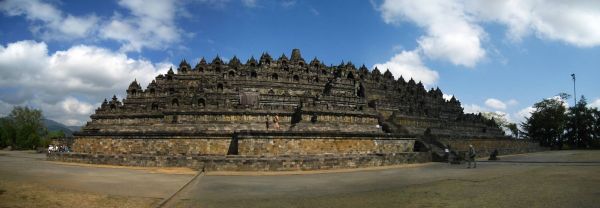

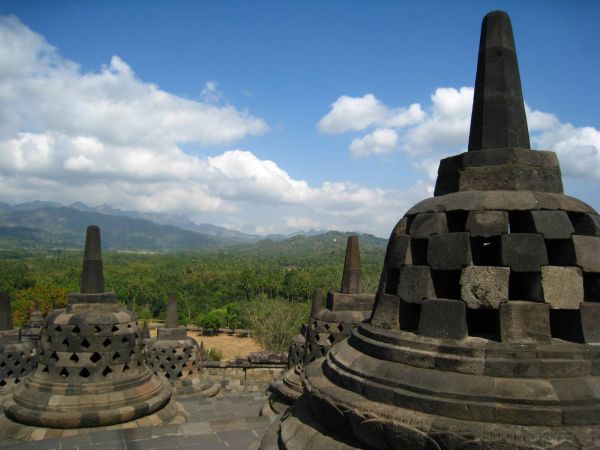
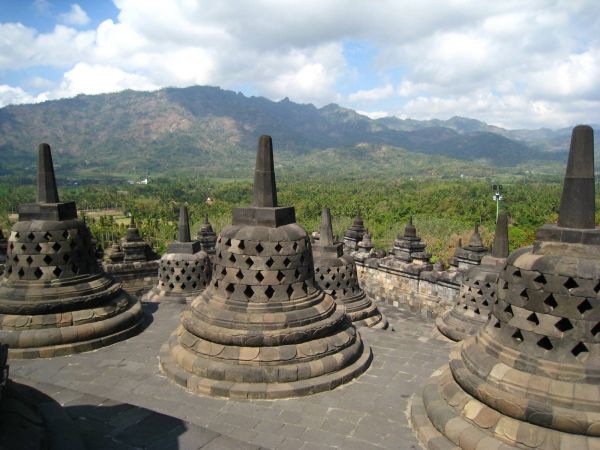
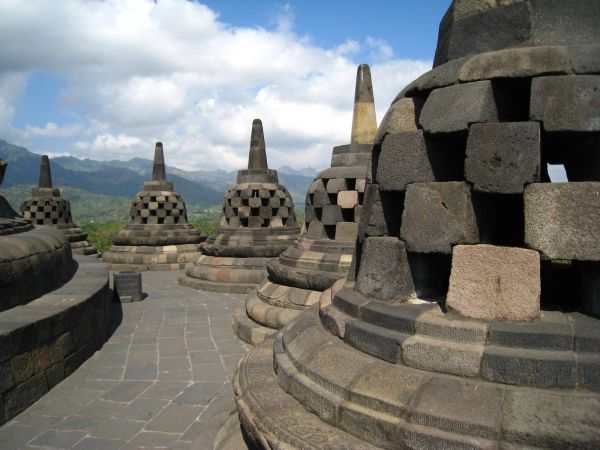
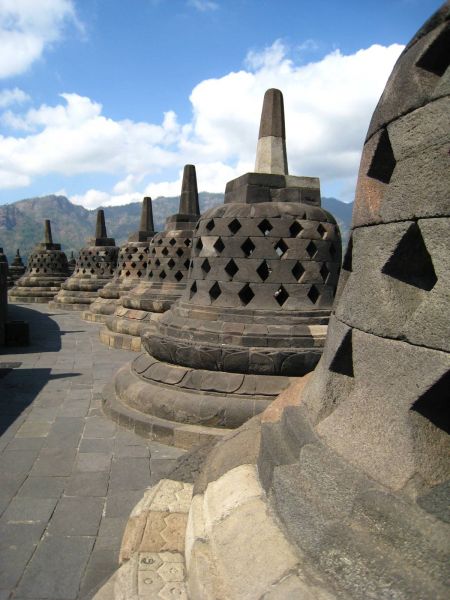
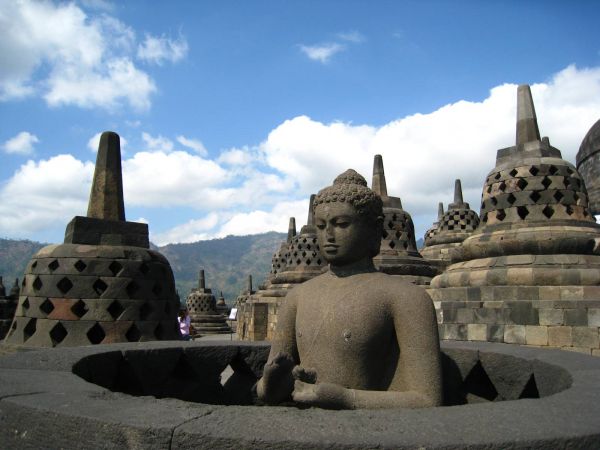

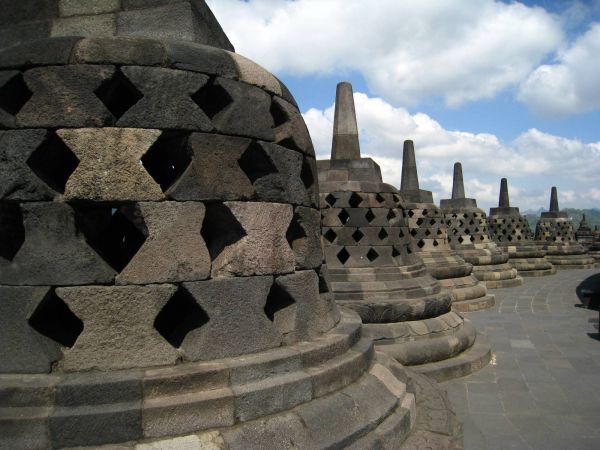
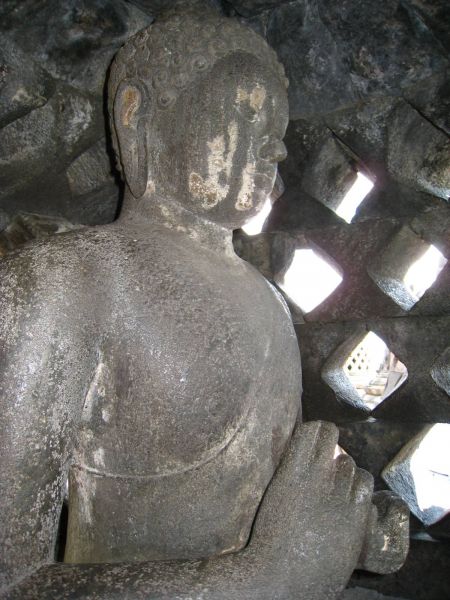
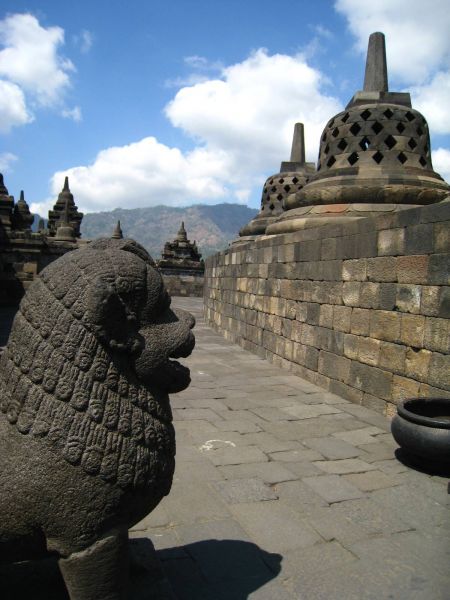
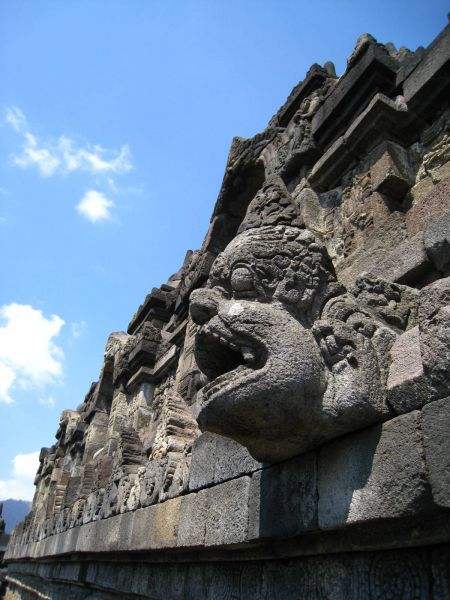
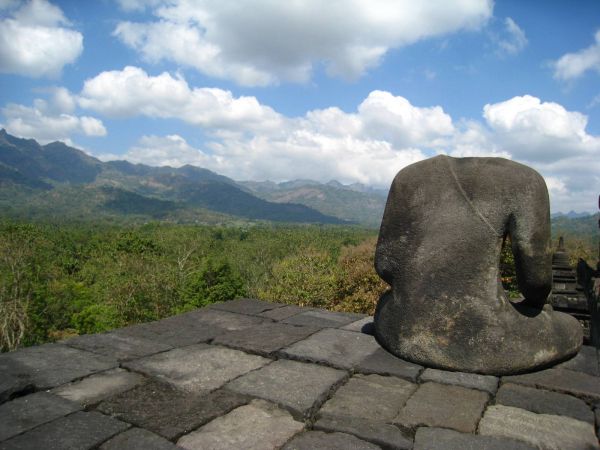
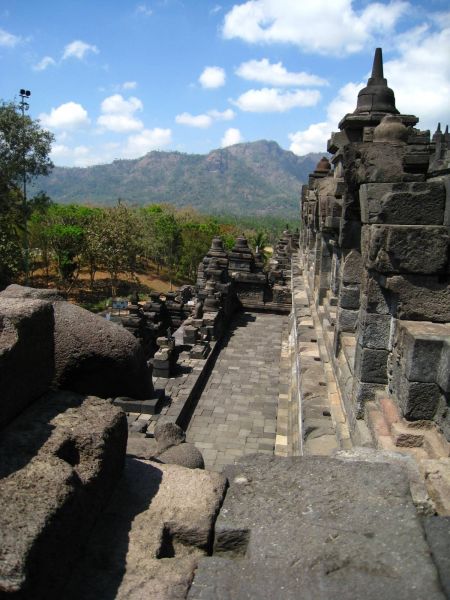
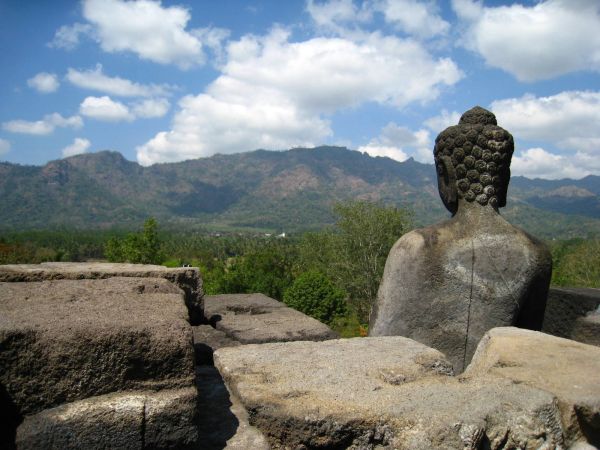
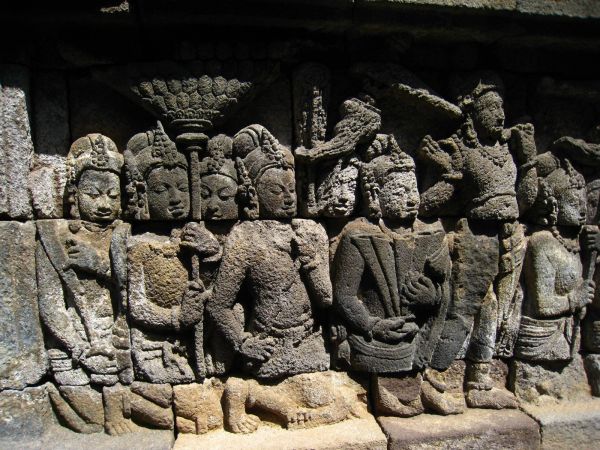
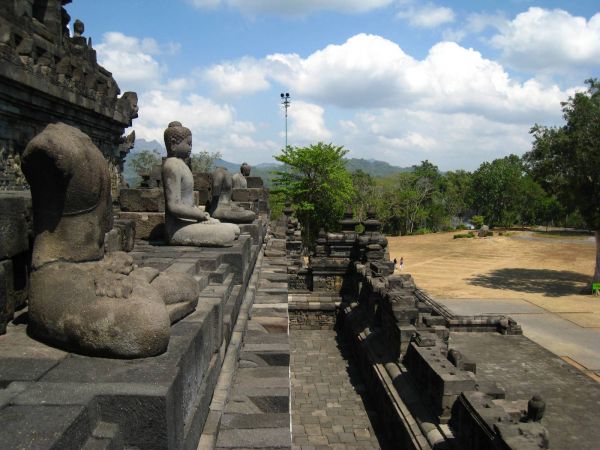
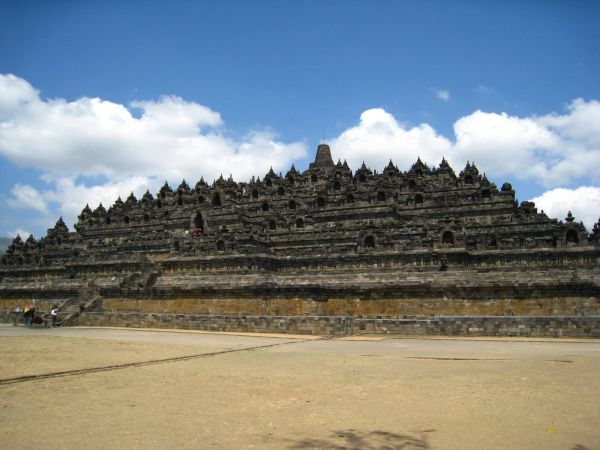
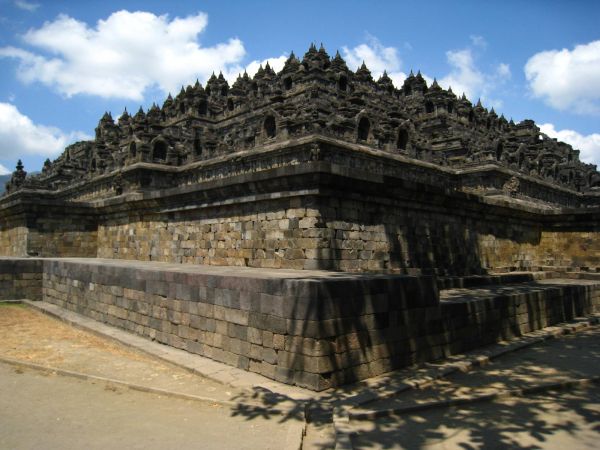
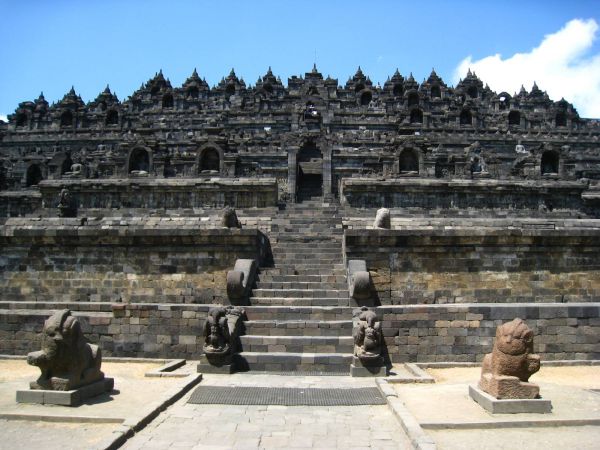
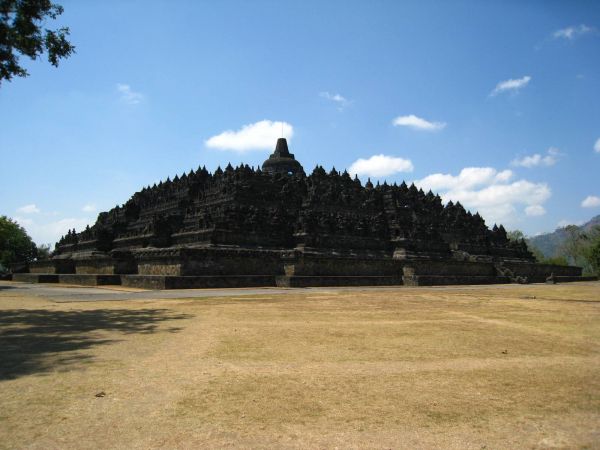
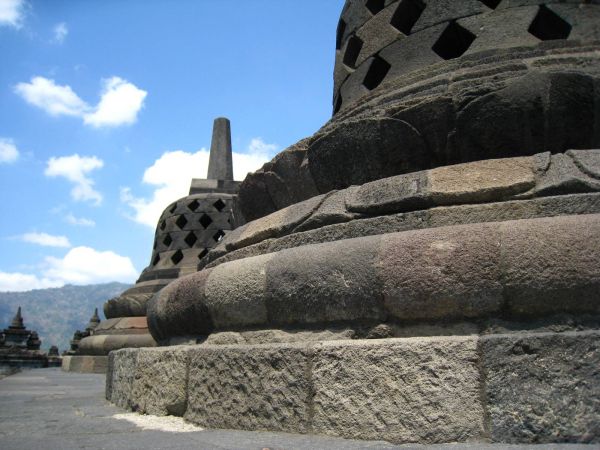
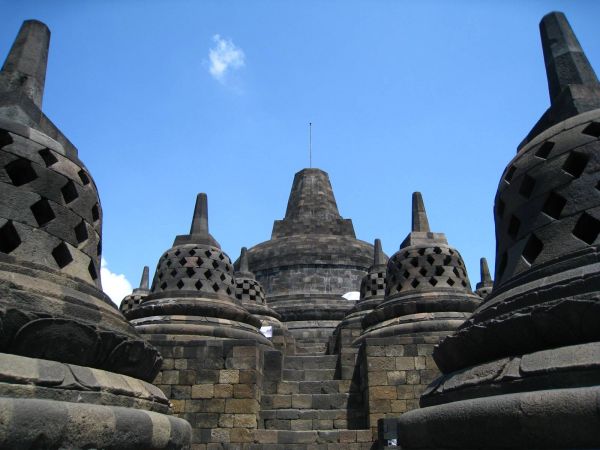
before heading back to Yogyakarta, « the soul » of the Java island, our van makes a detour to the Merapi volcano, subject of a devastating eruption a few years ago, then we stop at the Hindu-deities-dedicated Prambanan temples for a short time. Last Indonesian meeting before I fly off to Malaysia.
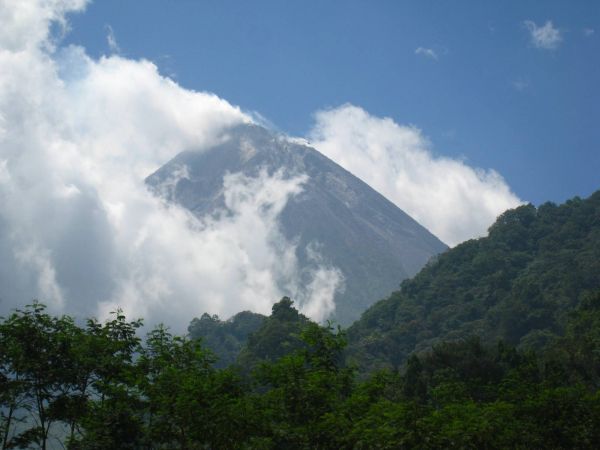
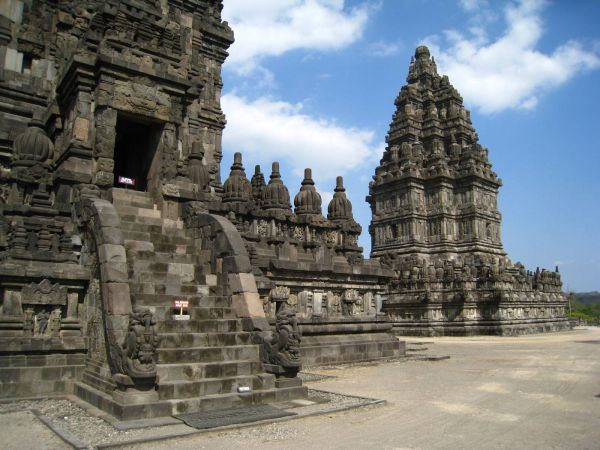
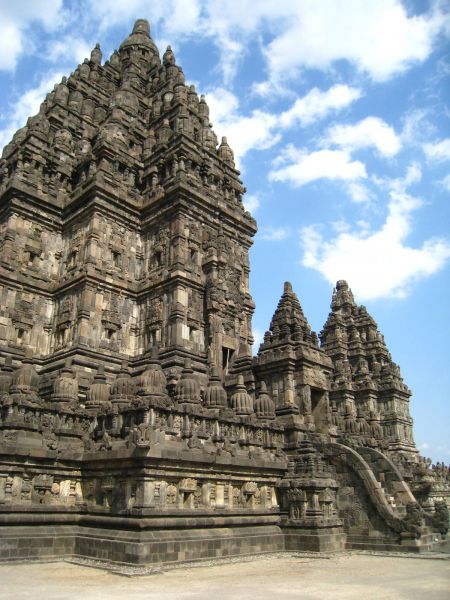
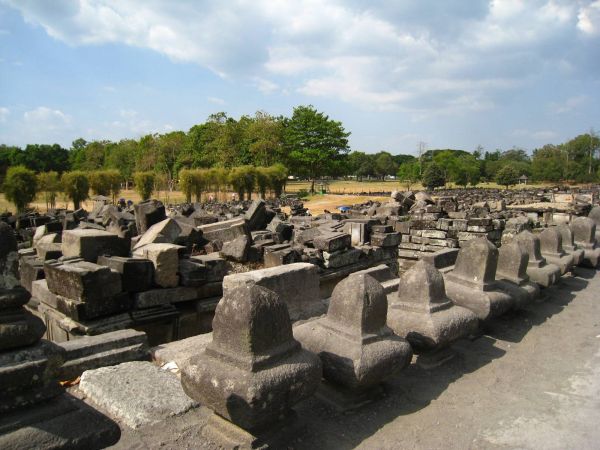
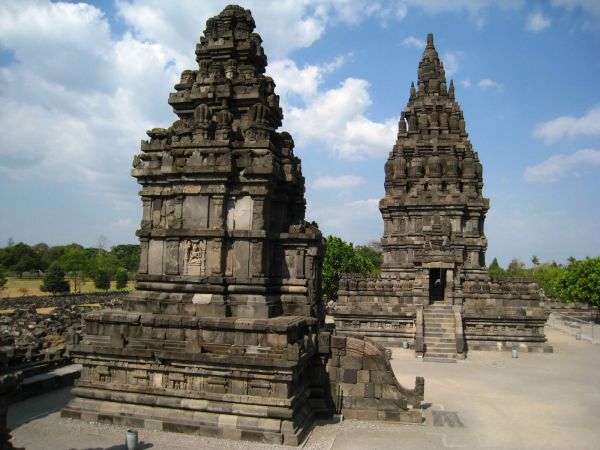
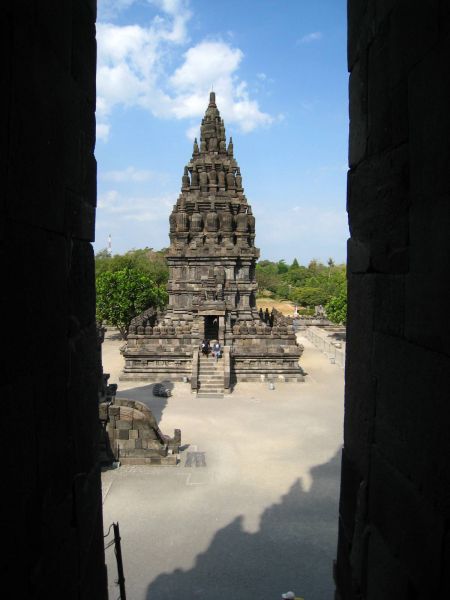
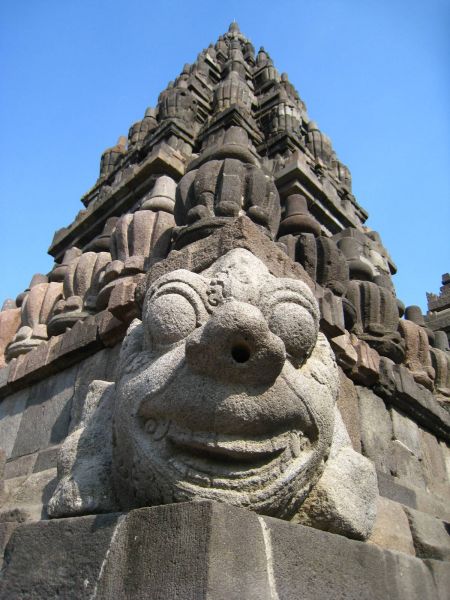
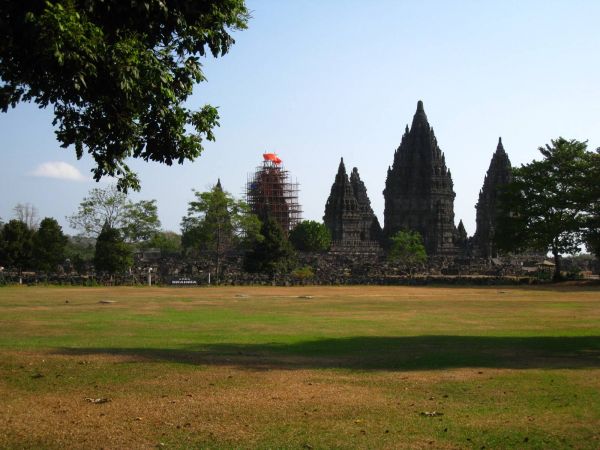
Keyword - archeology -
Tuesday 2 September 2008
the pyramid of Borobudur
By dorian on Tuesday 2 September 2008, 09:28 - RTW2-Indonesia
Monday 6 August 2007
The Buddhist grottoes of Longmen
By dorian on Monday 6 August 2007, 22:46 - RTW-China
Luoyang, 5 hours by bus south from Xi'an. The terminus of the number 81 local bus is located at the park entrance of the grottoes of Longmen. On the Unesco world heritage list, the cliffs of the east and west river banks were hollowed out and ornated with Buddhist motifs. The granite gruyère cheese was carved by the faithfuls. The rock clusters niches which formerly sheltered Buddha's representations. Because most of the statues are missing or eroded by the time devastation. Without viing with the splendid northern grottoes of Yungang, the relaxing stroll is flanked by the river on a side and by the cliff on the other one. The giant Buddha surrounded by stone warriors is the main attraction on the east bank.
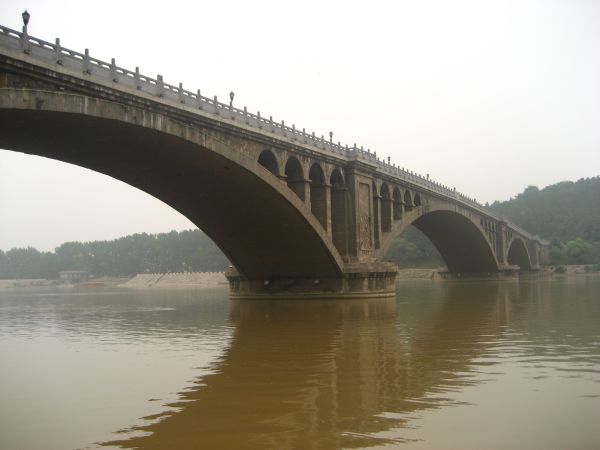

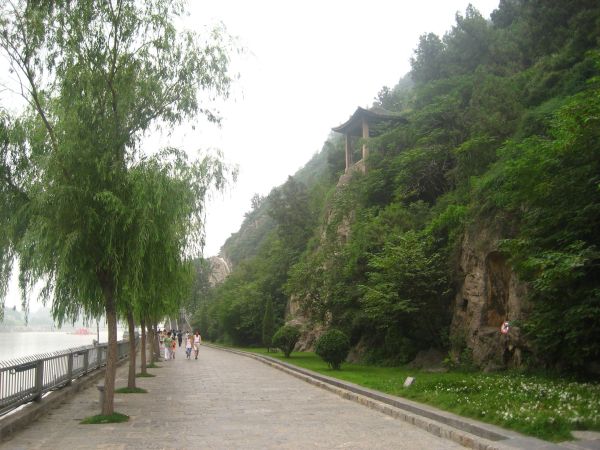
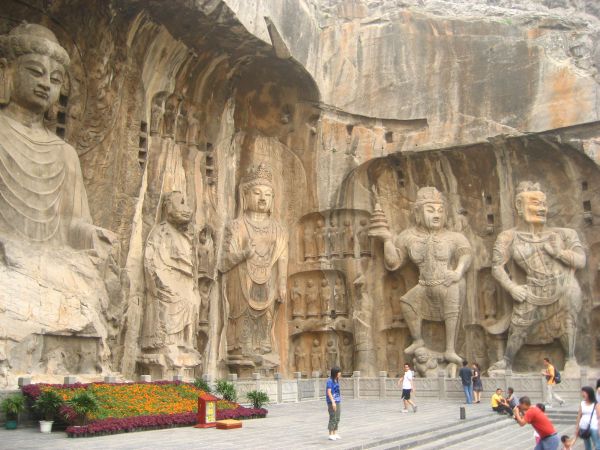
At the end of the cliff, a bridge strides over the river and the walk carries on the opposite bank. A temple without any tourists offers a great point of view on the cut cliff that looks out over us a few minutes before.
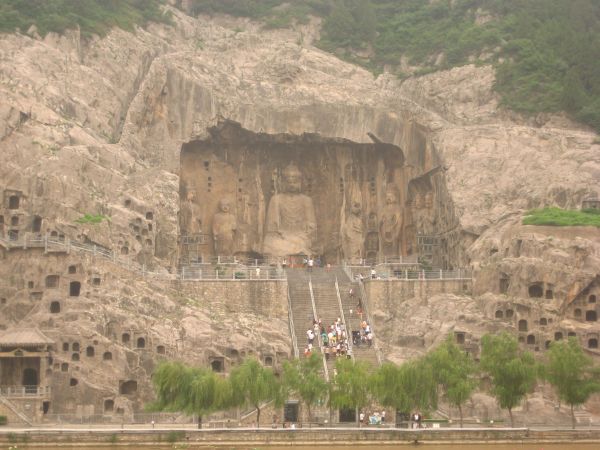
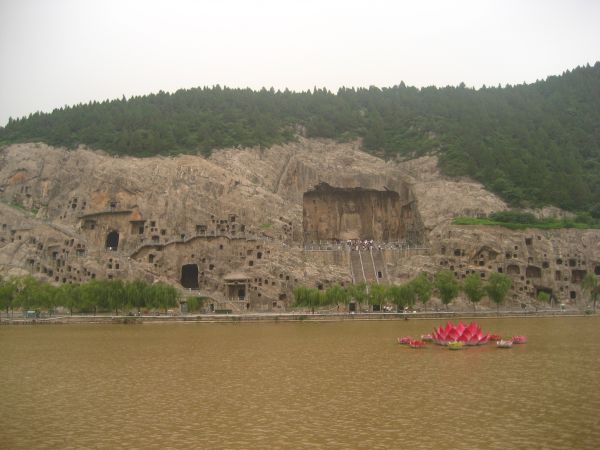
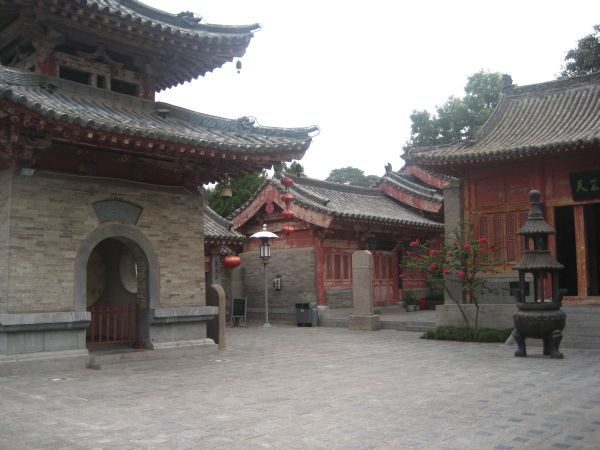
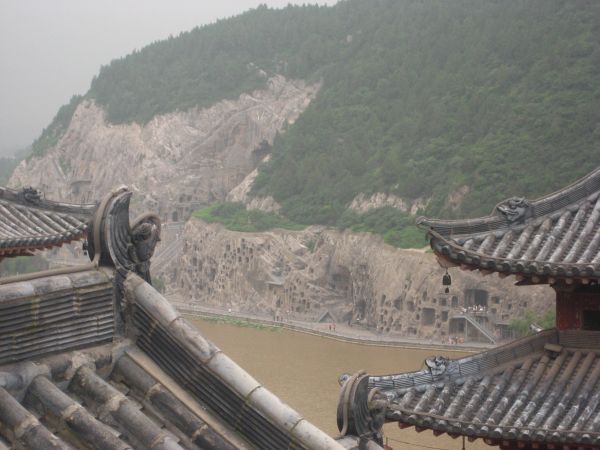
A second bridge takes us to the park entrance while a veil of darkness concludes the immovable spectacle of the grottoes of the dragon gate.
Saturday 4 August 2007
The terracotta army of Xi'an
By dorian on Saturday 4 August 2007, 22:37 - RTW-China
The nighttrain drops us off at Xi'an. East from this 8-million-inhabitant town, about thirty years ago, Chinese farmers digged out terracotta remains. A resounding discovery will follow, one of the greatest archeological discoveries of the century. Excavation will bring some 6000 life-size soldiers, archers and horses. Each of them show different features and faces, their own posture and weapon.
The 3 pits were covered with a metallic-framed roof to shelter the excavation places. We begin with the pits 2 and 3 that contain a few standing soldiers and some still dropped on the ground broken statues. A mouth-watering exhibition before the pit 1.



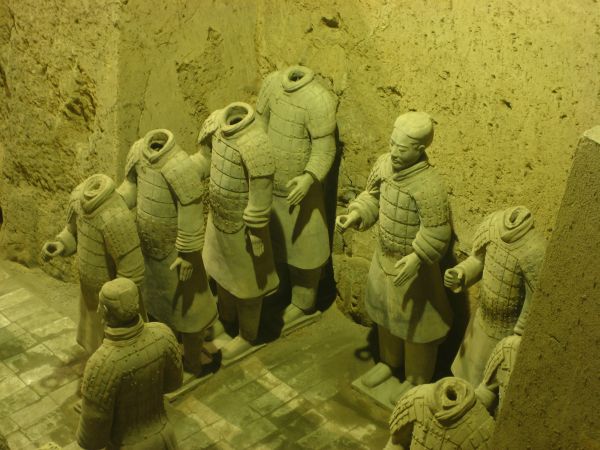
The pit 1 is immense. Equal to what there are in it. We get in the room, strong metallic ceiling hanging floodlights light the pit. We go up the stairs, move away the balustrades-congregated tourists to face this archeological jewel. An army is marching inside the stone trenches. The by-the-handrail crush disturbs the emotions of the spectacle in no way. Each individual is superb but that's their number which impresses. A horde of silent soldiers, militarily lined-up in rows and columns. The visit way goes round the arena and the look glued to the pit, we sweep over the faithful followers. Stupefying contrast between the excitement of the tourists, the jangling of the cameras and the age-old serenity of the terracotta army.
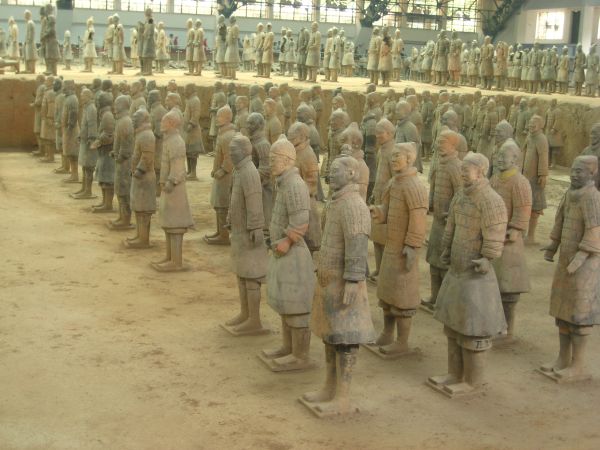

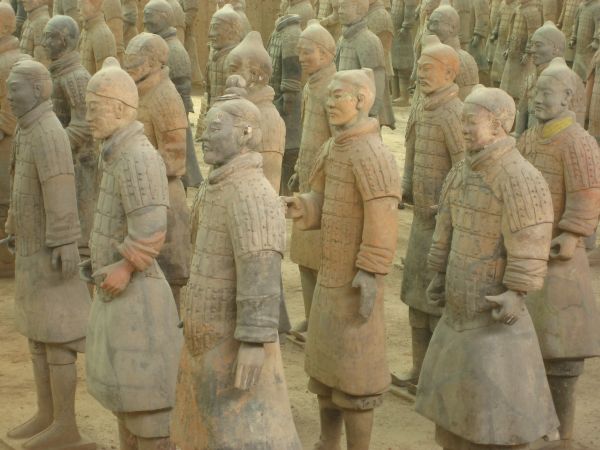

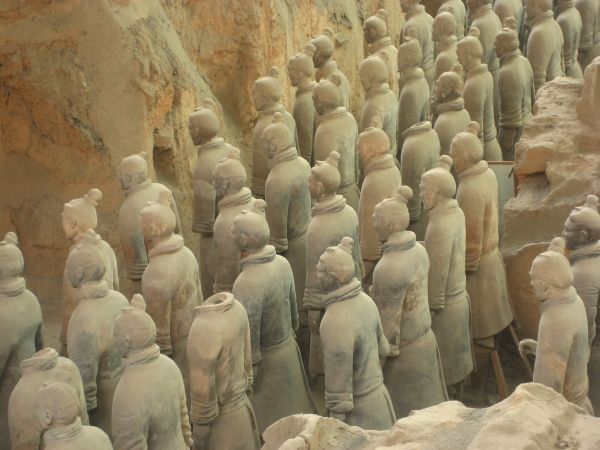
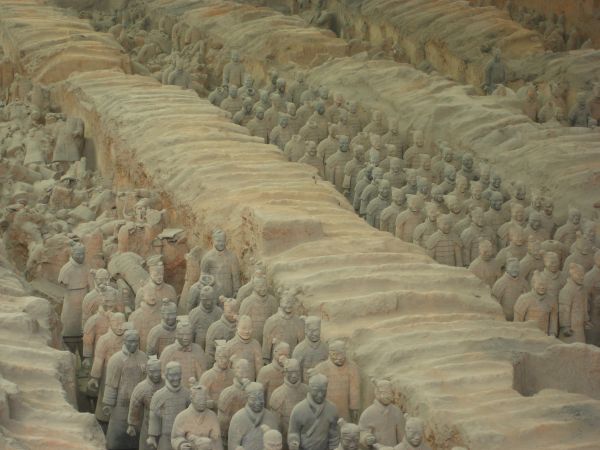
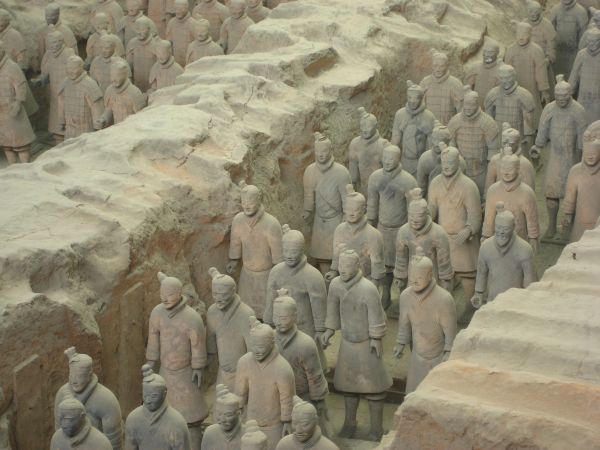

page 3 of 3 - next entries »





